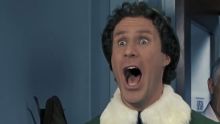★★★★★
(M) 128 minutes
More Trailers Videos
Trailer: La La Land
A jazz pianist falls for an aspiring actress in Los Angeles.
La La Land is a movie for now that belongs to the ages. A musical romance whose song and dance routines soar and swing so that they burst with a ready, real emotion, Damien Chazelle's film is a celebration of filmmaking that fittingly turns on the struggles of artists. The direction is dazzling but never oppressive – there's an upswing of the fantastic which is liberating. "Here's to the fools who dream," declares one song, and that's a perfect encapsulation of this wonderful experience.
Chazelle treats the musical sequences not as a formal counterpoint to the dramatic scenes, but a continuation full of possibilities. The moment between speaking and singing has the lightest of touches, as if the everyday just tips over into the extraordinary so that a stroll becomes a shuffle. The filmmaking techniques in La La Land, such as a handheld camera tracking a singer through their apartment to create an intimate sense of excitement, are alive with possibility.

Like Paul Thomas Anderson's Magnolia, another film where music intermingles with dialogue and convention falls away, La La Land is set in Los Angeles. It opens atop a jammed freeway ramp, so the cars seemingly stretch to the horizon, and when the various drivers break into the shared song Another Day of Sun they become a joyous flash mob that sets the city as a stage.
Left in their wake, tooting their horns at each other before offering more explicit feedback, are Mia (Emma Stone), a struggling actress working a coffee shop gig and the audition circuit, and Sebastian (Ryan Gosling), a young jazz musician stuck in a doleful rut because of failed plans. They meet, and fail to connect, repeatedly, which is one of the first signs that Chazelle's movie has a tougher emotional outlook than the melodies suggest.
To have creative hopes in this Cinemascope-wide landscape is to endure rejection. Mia's auditions are casual exercises in cruelty, while Sebastian must play the corniest arrangements of Christmas songs when he plays a shift at the restaurant run by Bill (J.K. Simmons). What the movie reveals is that making it requires self-belief fostered by someone who believes in you, and that taking it might mean leaving them behind.
Stone and Gosling had a flinty playfulness to their exchanges in 2011's Crazy, Stupid, Love, and the misfortune to be cast in 2013's dire Gangster Squad, but here they sparkle with a romantic give and take that also plays to their individual strengths. Stone's liquid-like emotional openness is racked by self-doubt, while Gosling undercuts his movie star reserve with geeky eruptions of enthusiasm. They are total aces together.

Neither star has an authoritative voice or dazzling dance skills, but that suits the luminous flow of the songs, which were composed by Justin Hurwitz with lyrics by Benj Pasek and Justin Paul. Being good instead of great accentuates the character's connection, particularly in a terrific sequence early on in which Mia and Sebastian dance together while lamenting that they're wasting a beautiful evening with one another; the choreography furthers the story.
In Chazelle's breakthrough film, 2013's Whiplash, a jazz drummer's quest for greatness nearly shatters him, but the danger here is compromise, as Sebastian experiences when he joins a soon successful band run by a contemporary, Keith (John Legend). Holding onto the past, whether in the form of a style you revere or someone you love, can sometimes mean denying the future, and the sadness of separation is as powerful here as the thrill of discovery.
Chazelle references, openly and with great affection, the 1950s Hollywood production numbers of Vincente Minnelli (An American in Paris) and Jacques Demy's 1960s French musicals (The Young Girls of Rochefort). But his film flows past mere homage, with striking pops of red and yellow in the production design and the ability to pull in tight for a painful argument about artistic responsibility between Mia and Sebastian.
La La Land, which is the best movie I saw in 2016, is a celebration and defence of 20th-century movements, whether classic jazz or Hollywood's Golden Age, but its advocacy is bound up in heartfelt connection and unsparing regret. The extended final sequence takes everything that has occurred and remakes it so that happiness seemingly lasts for both a few perfect moments and many years. It's incandescent and heartbreaking at the same time. Here's to the fools who dream.
















20 reviews
New User? Sign up